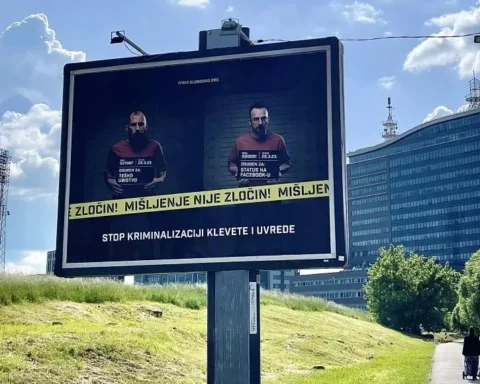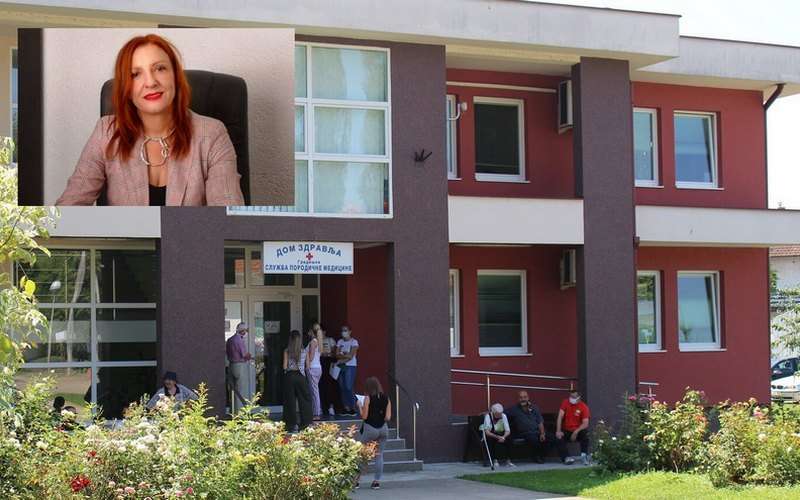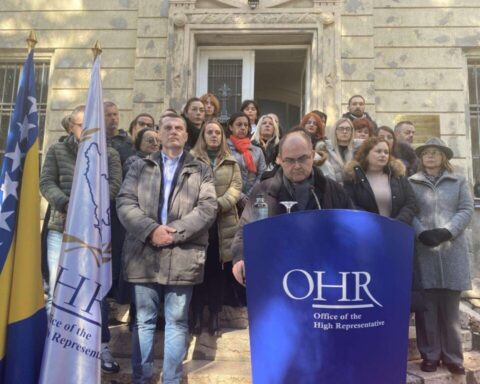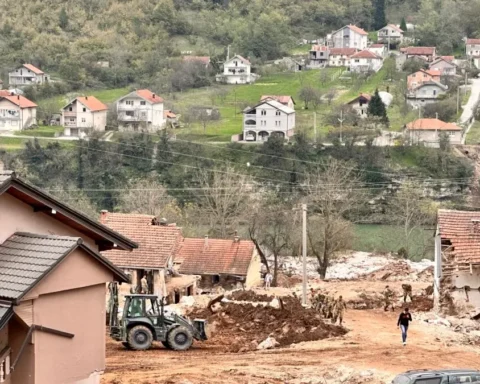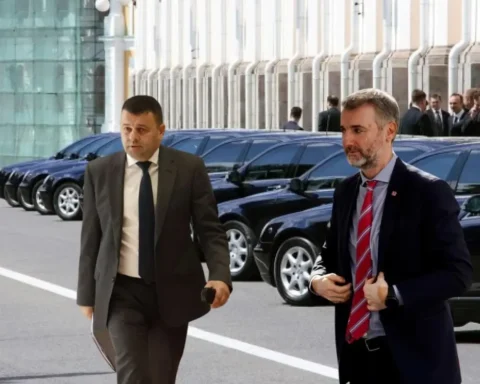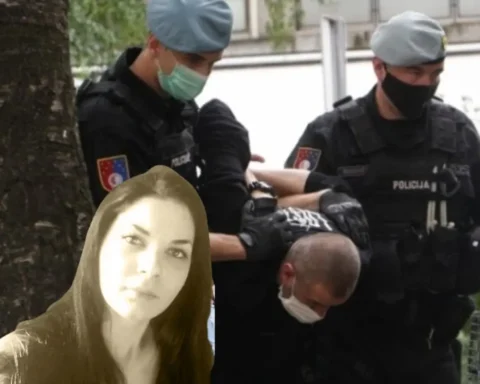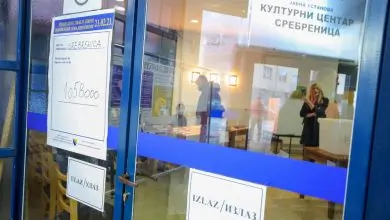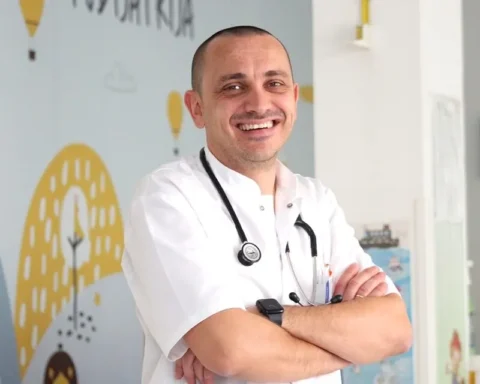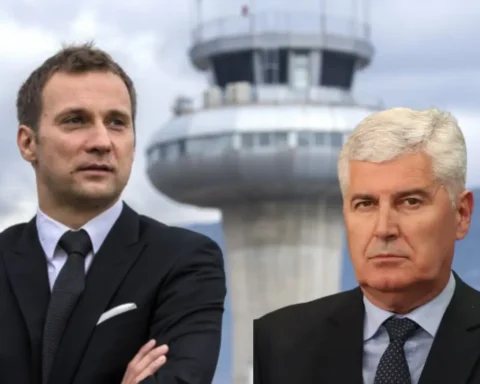 At the end of December, the news that the Federation of BiH was working on the preparation of a law on limiting the quantities of produced alcoholic beverages per household passed completely under the radar. It is about harmonizing the law with the directives of the European Union, to which BiH has committed itself, which the state, as an applicant for membership, must fulfil.
At the end of December, the news that the Federation of BiH was working on the preparation of a law on limiting the quantities of produced alcoholic beverages per household passed completely under the radar. It is about harmonizing the law with the directives of the European Union, to which BiH has committed itself, which the state, as an applicant for membership, must fulfil.
The Republika Srpska is not talking about that law for now, but it is quite certain that it will not take long to pass it. According to the hosts throughout BiH, producing ‘only’ 50 litres of brandy or wine is a blow to tradition. Zoran Papić from Trševin near Višegrad and Ivo Šimunović from Šibenik in the vicinity of Jajce also agree on that.
They agree that ‘Bosnia and Herzegovina should become a part of Europe’, but they wonder whether the most important thing is to ‘start from the tail, not the head’.
Now there is the other side, so it could be stated that it is good that anyone in the country is doing anything when it comes to the conditions that must be met in order for BiH to finally open accession negotiations for membership in the European Union.
February 2021 will mark the sixth anniversary of BiH’s formal application for membership of the European Union. Since then, a process has been going on in which the European Commission was first expected to prepare an Avis, i.e. an opinion on the ability and readiness of our country for EU membership. And that meant answering a questionnaire containing 3,897 questions, which gives an overview of the political, legal, economic and administrative system of the state. It took BiH, institutions, three years to submit the required answers.
Theory and Practice
And no one, unfortunately, is surprised. As it is no wonder that we are a country at the very tail end of the process of joining the family of European countries. Because, theoretically, for years, political leaders have publicly and formally advocated for BiH’s membership in the European Union. Their mouths are full of readiness to implement its acquis, and if they are asked and trusted, a special celebration for the new member state would be prepared.
Theoretically, we repeat, that is so. In practice, the more time passes from Europe, the further we are. Although Croatia ceded its acquis after becoming a full member of the EU, it is clear that no one has read a single page of those documents. And all this with the justification that ‘the situation in BiH is different in relation to other countries, due to the complexity of its internal structure’.
Thus, the ‘complex internal structure’ becomes a kind of alibi that the harmonization of legislation with the acquis communautaire is delayed indefinitely. Because, for any change, it is necessary to form working groups and commissions, to determine entity, national and party balances. And it is true that BiH does not have competence in a number of areas that will have to be harmonized with European Union standards, but it is simply uncomfortable, to say the least, from the Republika Srpska entity, from people who consider themselves serious politicians, we hear statements that ‘the European Union should have an understanding of the specifics of BiH’.
But as time goes on, membership in the Union in our country, apart from the fact that hardly anything is being done, is being talked about less and less. Especially in political circles where responsibility is key.
The reason is actually simple. To be part of a democratic, civilized world means to build a state on the foundations, in the broadest sense of the word, of the rule of law. Which means it’s not enough to just have laws but enforce them. Which means that all citizens are equal before the law. What does it mean to put an end to corruption, nepotism?
Because at the very moment when the negotiations on membership are open, special attention is paid to chapters 23 and 24, which refer to justice and fundamental rights and justice, freedom and security, because these are issues and areas that are most important to citizens.
The precondition for this is, first of all, an independent judiciary. Which in BiH, as it is now, is just a noun of thought. And in which, from the top to the bottom of the scale, public prosecutors and judges are largely political henchmen who protect the interests of powerful people in power or those who are on the sidelines of that power. The part of judicial office holders who did not obey the authorities is in an even more difficult situation, because in BiH, court decisions are questioned over and over again instead of being implemented. In cases when they are not at the will of ‘our people’ or ‘our politicians’. And there is always someone ‘ours’ by that logic.
Hence, protest scenes before the Court of BiH have become normal when war crimes verdicts are handed down to ‘patriots of our people’. As it is normal that under the motto of the presumption of innocence, high holders of executive and legislative power continue to perform their functions, and when they are tried for corruption scandals worth hundreds of millions of marks, which did not threaten to endanger human lives, as it was confirmed during the pandemic.
That is why there is less and less talk about BiH’s membership in the European Union. Because in countries where ministers and prime ministers resign after the first trace of corruption is discovered, it is difficult to understand how in BiH the entity prime minister can continue to sit in his chair after the affair with the import of defective respirators. Or how is it possible that in the midst of a pandemic, the director of the RS Institute of Public Health and several people from the same party column, get rich with the purchase of protective masks and departments that guarded the lives and health of medical workers who fought for the lives of patients in the COVID pandemic?
Or how is it possible that for three months the Prosecutor’s Office of the Republika Srpska has not recorded any progress in the investigation into the oxygen affair? If for no other reason than that because of the hundreds of citizens who are wondering if their family members died of the Coronavirus or because they were given technical support instead of medical oxygen to support their treatment. And how, at least for moral reasons, the resignations were not offered by the RS Minister of Health and the director of the University Clinical Center Banja Luka.
Politicians do not talk about membership in the European Union because the murderers of Dženan Memić and David Dragičević would have been brought to justice in the rule of law a long time ago. Because in a state governed by the rule of law, their fathers, friends, citizens of this country would not call for justice on the street, but would get it where justice is distributed – in the courtroom. The European Union is not talked about either, because in a state governed by the rule of law, the police do not persecute citizens who seek justice, but search for the perpetrators of criminal acts.
And last but not least. Who in the Republika Srpska entity is ready to seriously work on establishing the rule of law when they keep that state under blockade for months due to the decisions of the former High Representative who imposed amendments to the BiH Criminal Code sanctioning genocide denial and glorification of war criminals. How, it is an essential question, to expect these and such politicians to stand up for the rule of law?
There is no talk of BiH’s membership in the European Union, because politicians always have ‘more important work’ to do, and that is the continuous conduct of election campaigns. For general or local elections. And in order to win, it is absolutely necessary to mobilize ‘one’s own people’ by making fun of another nation. Understandably, because it is easier to incite nationalism than to deal with legislation that would make BiH a stable and civilized state. A country that would attract foreign investors, a country where workers would live from their work, and have not been on the brink of poverty for 26 years.
And how to get to the EU when some members like Hungary are deliberately undermining that path. Therefore, it is more than cynical when the Hungarian Prime Minister emphasizes that BiH should become part of the EU and at the same time publicly supports the separatist policy of Milorad Dodik. And when Dodik and others like him are increasingly turning their heads towards right-wing governments in the European Union and building close relations with such parties in Austria, Italy…
Life Is Too Short to Wait
At the same time, the citizens are not asked anything. And most of them are reconciled to the chaos in which we live to such an extent that it does not occur to them that power is in their hands. And that they can change things in their favour. In elections or on the streets.
That is how we come to the devastating data, and it was recently published by the BiH Labour and Employment Agency that half a million citizens have left the country in the last six years. Most of them today are workers and residents of some of the countries of the European Union. Whether they are IT engineers, doctors, nurses or just ‘builders’, maids, laundry workers. All of them have replaced the BiH uncertainty with states that guarantee them at least basic legal, economic and social security. That they can prosper whether they live alone or raise and educate their children in those states. For them, life was too short to wait for BiH to become part of such an orderly system.
The rest of us are who left, at least now that the country is falling apart, instead of talking about the European Union, need to reopen the question of whether we will paint our house or pack our suitcases for some new refuge? Or to ask whether the basic priority of the government, and all in the spirit of readiness for EU integration, is to introduce a quota to Zoran and Iva from the beginning of this text, on how many brandies they will bake in their yard next year.


